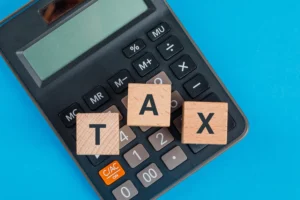Many UAE companies work from Free Zones to enjoy tax benefits, yet they also have operations either within the mainland UAE or in foreign countries. That’s where the concept of Permanent Establishment (PE) becomes important.
Companies need to understand the difference between Domestic PE and Foreign PE in the UAE to understand their liabilities comprehensively. Once you know what counts as a PE and how it’s taxed, you can manage your activities wisely and stay compliant with the UAE’s Corporate Tax (CT) Law.
Let Tax Gian guide you about the concepts of domestic and foreign PE and how they are treated under the UAE CT law. Our corporate tax consultants in the UAE can provide you with additional guidance.
What Is a Permanent Establishment (PE)?
A Permanent Establishment means having a fixed place where business activities take place. This place must be outside the Free Zone to count as a PE under UAE tax rules. PEs can be created in two main ways:
- Through a fixed business location, like an office or factory.
- By working through someone who acts on behalf of the company (a dependent agent).
Domestic Permanent Establishment: What It Means
A Domestic PE is when a Free Zone company operates in other parts of the UAE, outside its registered Free Zone. For example:- A company has its headquarters in a Free Zone but opens a branch in the Dubai mainland.
- That branch operates regularly, with its own office and staff.
In these cases, the branch is treated as a Domestic PE. The income it earns is taxed at 9%. Importantly, this income does not count toward the de minimis limit (a limit that helps companies qualify as Free Zone Persons for tax exemptions).
Foreign Permanent Establishment: Operating Abroad
A Foreign PE exists when a UAE-based company sets up a branch or agent in another country. This might include:- A warehouse in India
- A sales office in Saudi Arabia
- A factory in Egypt
Under UAE tax rules, a resident person (including Free Zone entities) can elect to exclude the income from their Foreign PE from UAE corporate tax. But this comes with conditions. If this option is chosen, the company must exclude all foreign PE income and expenses, not just some. This rule helps avoid double taxation, especially when tax treaties are in place.
Still muddled? Get assistance from a corporate tax consultant in Dubai.Fixed Place Test: What Qualifies as a PE?
For a location to be treated as a PE, it must meet certain tests. The place should:- Be fixed and permanent (like an office, workshop, or construction site)
- Be used for business for at least 6 months in a 12-month period
What Does Not Count as a PE?
Certain activities do not lead to the creation of a PE. These include:- Just storing goods in a place
- Delivering products
- Collecting information
- Doing simple marketing or admin work
Dependent vs. Independent Agents
If a company hires an independent agent, like a contractor or a broker, to sell goods or services, that usually doesn’t create a PE. But if the agent is dependent (meaning they act only for that company and can make deals on its behalf), it does create a PE. That could trigger taxes. You can ask more about this from corporate tax consultants in the UAE.
Profit Allocation: How Income Is Split
If a Free Zone parent company uses its goods or staff in a PE’s operations, the tax authorities will treat that as regular business income. The profits are divided based on what each part of the company actually does, using the arm’s length principle. That means:
- Each part of the company should be treated as a separate business.
- Profits are split according to the roles, risks, and assets involved.
How can Tax Gian Assist?
Creating a Domestic PE or Foreign PE without proper planning can trigger tax charges and limit exemptions. With Tax Gian, you can understand what counts as a PE, use the tax laws to your advantage, not against you and stay compliant with tax regulations all the time. Our corporate tax consultants offer you the utmost guidance, drawing on years of experience and expertise.



